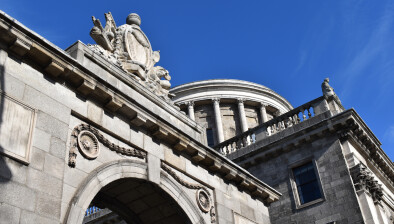High Court advocates for plain English in judgments

Judges should use plain English in judgments and avoid “Latin terms or terms of art, known only to lawyers”, a High Court judge has said.
Mr Justice Michael Twomey made the remarks as he handed down a ruling on costs in the case of Propiteer Ireland Limited v Castlehaven Property Finance DAC & Others [2025] IEHC 451.
Castlehaven sought costs on a legal practitioner and client basis against Propiteer in relation to proceedings which were brought on a “false basis” and discontinued at an early stage.
Mr Justice Twomey said the meaning of the terms “legal practitioner and client” and “party and party”, in relation to costs orders, “would be unknown to most laypersons and even to some lawyers, i.e. those who do not specialise in litigation”.
The judge said it was “implicit” in the Supreme Court’s judgment in PW v CIE [1967] IR 137 “that judgments should, where possible, be easily understood by a layperson”.
He also noted an English Court of Appeal ruling, in Churchill v Merthyr Tydfil [2024] 3 All ER 771, in which the judge had decided not to use the Latin term “obiter”.
“Although he did not refer explicitly to the rule of law, it is clear that by using plain English, [the English judge] was thereby making the court’s judgment more accessible and so, more compliant with the rule of law,” Mr Justice Twomey said.
Applying those principles to the case, Mr Justice Twomey said he would use the term “usual costs order” to describe an order for party and party costs, and the term “enhanced costs” to describe legal practitioner and client costs.
He concluded that Propiteer’s conduct was “not so egregious as to require an order for enhanced costs… particularly when one considers that Propiteer discontinued the proceedings at an early stage, rather than pursuing them to a full hearing and an appeal”.
He also provisionally agreed to award costs to Propiteer in relation to the costs hearing, pending a final hearing in October.










